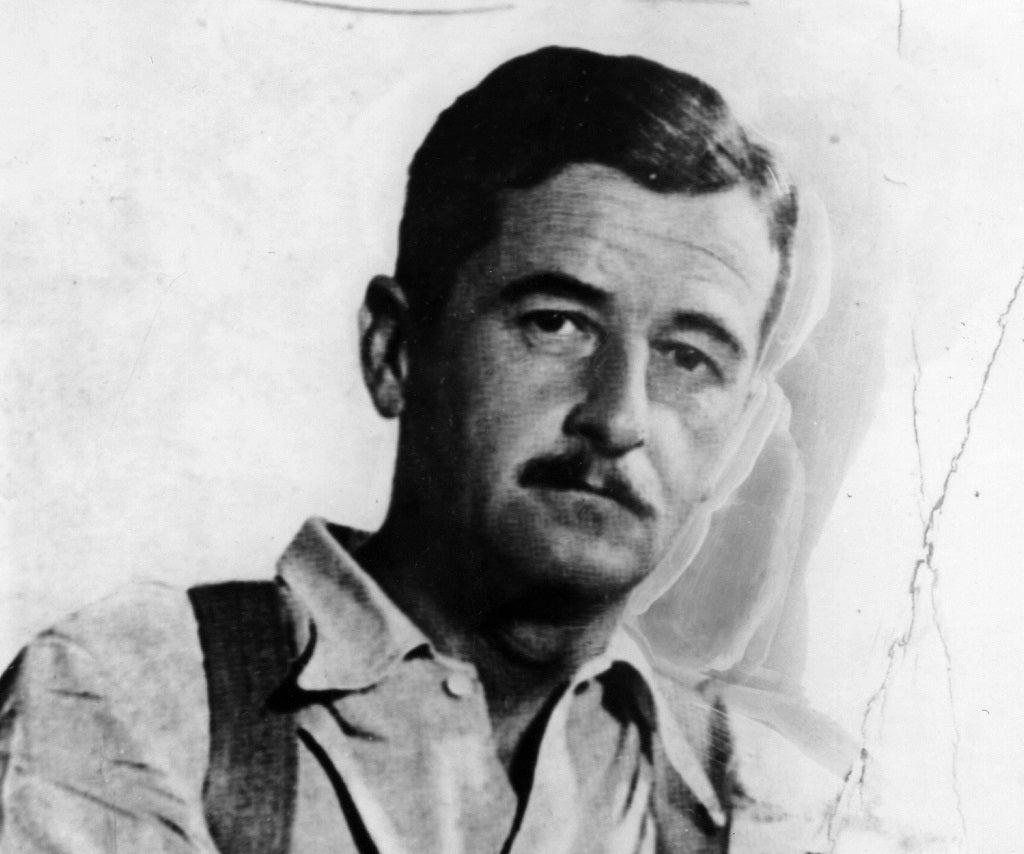Does William Faulkner really need protecting?
The Mississippi author's estate have come out with two of the most unreasonable lawsuits in literary history

Mention certain literary estates to any number of editors, publishers and writers and you will see them shudder. These guardians of dead writers’ works can be ferocious protectors of reputations. Stephen Joyce, grandson of James, destroyed more than a thousand letters written by the writer’s disturbed daughter Lucia to her father – as well as some to her from the man she loved, Samuel Beckett. Beckett’s own estate gets very exercised when directors play fast and loose with his stage works, and TS Eliot’s widow, Valerie, is considered largely responsible for the snail’s pace at which her late husband’s letters have been published.
And now William Faulkner’s estate has come out fighting, with two lawsuits which, you might think, represent the far end of the scale of reasonableness. One is against Sony pictures, deemed responsible for loosely quoting a line from Faulkner’s Requiem for a Nun (“the past is never dead. It’s not even past”) in Woody Allen’s film Midnight in Paris.
The second lawsuit is perhaps less preposterous. Taking a quote from Faulkner about freedom (“We must be free not because we claim freedom, but because we practice it”), the military technology company Northrop Grumman is said to have used Faulkner’s name to give itself a little literary kudos in a full-page ad in The Washington Post for the Fourth of July.
And so there you have it, in two halves of a nutshell, if you will: the case for, and the case against, aggressively protective concern for the reputation of an author. Deeming the quotation, or even lifting, of even a single line from a body of work and transplanting it into another (half a century after the original author’s death, moreover) unacceptable place places great restraints on the ability to make meaningful comments based on past wisdom – or to keep the past alive. (It also makes a mild mockery of Eliot’s line about immature poets imitating, and mature poets stealing.)
If only the Faulkner estate had restricted their legal efforts to fighting Northrop Grumman, a company which manufactures, among other things, the B-2 Stealth Bomber. To say whether this qualifies the company to claim a special relationship with freedom is, shall we say, debatable, but one suspects that Faulkner would probably not have supplied a quote for Northrop if they had directly asked him to do so. (Irony: the words immediately preceding that line of Faulkner’s are: “We cannot choose freedom established on a hierarchy of degrees of freedom, on a caste system of equality like military rank.”)
But instead they’ve made themselves look silly with the first case against Sony. Protecting writers against being lifted by the military-industrial complex is one thing. Protecting them from being quoted by Woody Allen characters is quite another.

Join our commenting forum
Join thought-provoking conversations, follow other Independent readers and see their replies